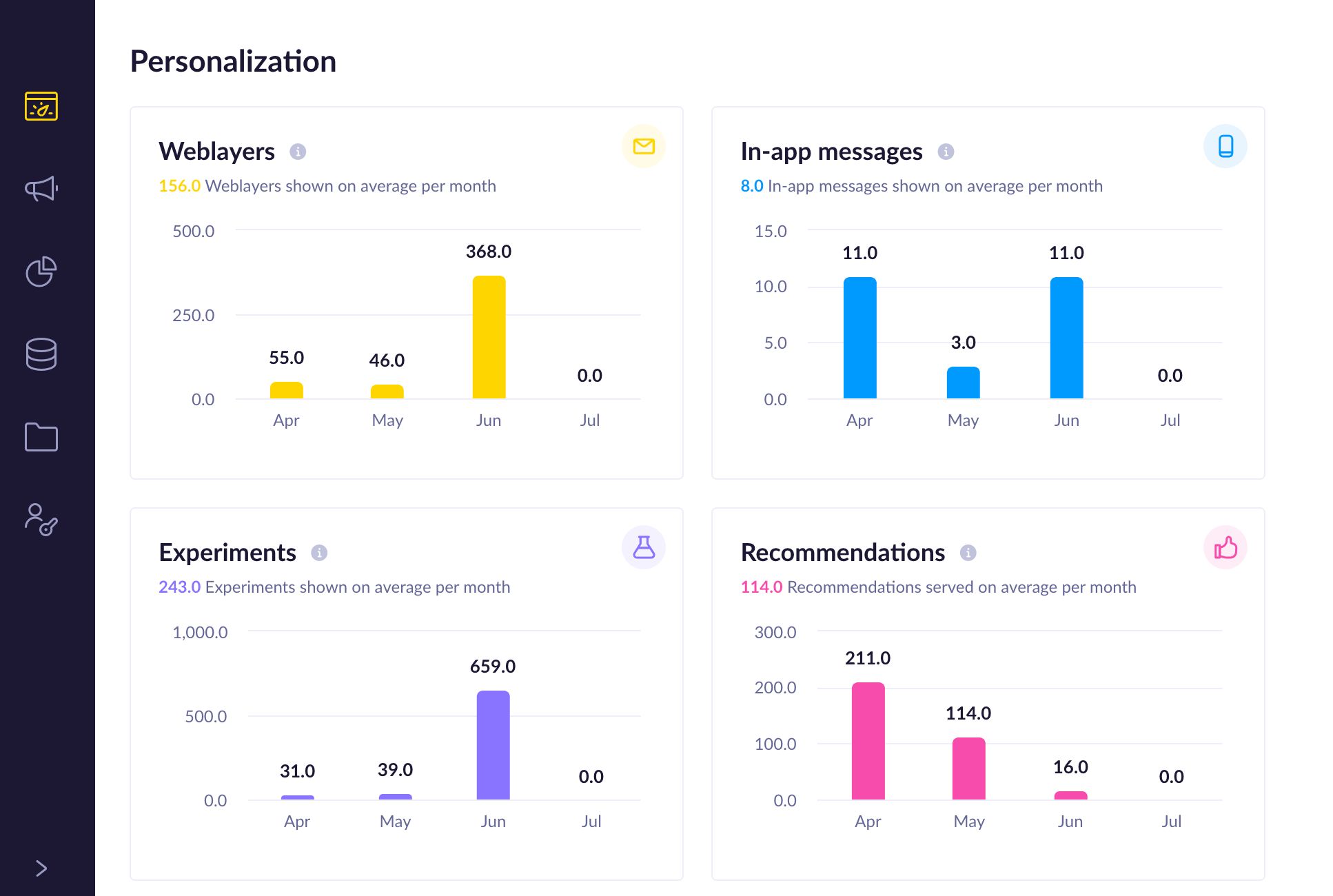Alternatives to Freshworks
1. Bloomreach Experience
+Pros
- Commerce-Specific AI Excellence through Loomi AI's agentic approach delivers measurable business results that generic platforms cannot match .
- Proven ROI Validation through Forrester's independent study calculating 251% ROI and $6.72 million net present value provides credible evidence of business value .
- Unified Data Architecture eliminates integration complexity by combining CDP, marketing automation, and merchandising within a single platform .
-Cons
- Implementation Complexity creates barriers for organizations lacking dedicated technical resources .
- Pricing Transparency Issues through the quote-based model complicate competitive evaluation and budget planning .
- Dashboard Complexity Concerns reported by users indicate that advanced capabilities may require extensive training to utilize effectively .
One highlighted feature and why it's amazing
Employs an agentic approach that predicts customer intent and initiates proactive conversations rather than simply responding to customer actions .

Another highlighted feature of why it’s amazing
Combines CDP, marketing automation, and merchandising capabilities within a single architecture, eliminating data silos that typically plague multi-vendor implementations .
2. Encharge
+Pros
- Behavior-triggered automation specifically designed for ecommerce businesses
- Visual workflow builder enables sophisticated automation without technical expertise
- Native ecommerce integrations provide immediate value for Shopify and WooCommerce merchants
- Transparent pricing and 30-day implementation timelines for SMB deployments
-Cons
- Focus on email automation rather than comprehensive omnichannel capabilities
- Limitations in high-touch B2B scenarios and complex compliance workflows
- Mobile optimization limitations depend on platform integration capabilities rather than native functionality
- Advanced features require higher-tier plans, creating potential cost escalation for organizations with complex requirements
One highlighted feature and why it's amazing
Responds dynamically to customer actions across multiple touchpoints. The platform's visual workflow builder enables marketers to create conditional sequences based on email opens, website visits, purchase behavior, and feature usage patterns without technical expertise.

Another highlighted feature of why it’s amazing
Analyze customer engagement data to identify optimal timing and content for onboarding sequences.
3. Octane AI
+Pros
- Specialized quiz-driven personalization
- Shopify-exclusive integration depth
- Zero-party data collection
-Cons
- Platform exclusivity limits to Shopify
- Engagement-based pricing creates cost unpredictability
- Feature breadth constraints compared to Klaviyo and Bloomreach
One highlighted feature and why it's amazing
Leverages conditional logic engines that dynamically adapt quiz flows based on customer responses, enabling sophisticated product recommendations.
Another highlighted feature of why it’s amazing
Creates unified customer profiles by syncing quiz data with email and SMS platforms, enabling dynamic customer segmentation.
Other Alternatives
Rep AI Ecommerce Platform
Userpilot
How We Researched This Guide
About This Guide: This comprehensive analysis is based on extensive competitive intelligence and real-world implementation data from leading AI vendors. StayModern updates this guide quarterly to reflect market developments and vendor performance changes.
224+ verified sources per analysis including official documentation, customer reviews, analyst reports, and industry publications.
- • Vendor documentation & whitepapers
- • Customer testimonials & case studies
- • Third-party analyst assessments
- • Industry benchmarking reports
Standardized assessment framework across 8 key dimensions for objective comparison.
- • Technology capabilities & architecture
- • Market position & customer evidence
- • Implementation experience & support
- • Pricing value & competitive position
Research is refreshed every 90 days to capture market changes and new vendor capabilities.
- • New product releases & features
- • Market positioning changes
- • Customer feedback integration
- • Competitive landscape shifts
Every claim is source-linked with direct citations to original materials for verification.
- • Clickable citation links
- • Original source attribution
- • Date stamps for currency
- • Quality score validation
Analysis follows systematic research protocols with consistent evaluation frameworks.
- • Standardized assessment criteria
- • Multi-source verification process
- • Consistent evaluation methodology
- • Quality assurance protocols
Buyer-focused analysis with transparent methodology and factual accuracy commitment.
- • Objective comparative analysis
- • Transparent research methodology
- • Factual accuracy commitment
- • Continuous quality improvement
Quality Commitment: If you find any inaccuracies in our analysis on this page, please contact us at research@staymodern.ai. We're committed to maintaining the highest standards of research integrity and will investigate and correct any issues promptly.